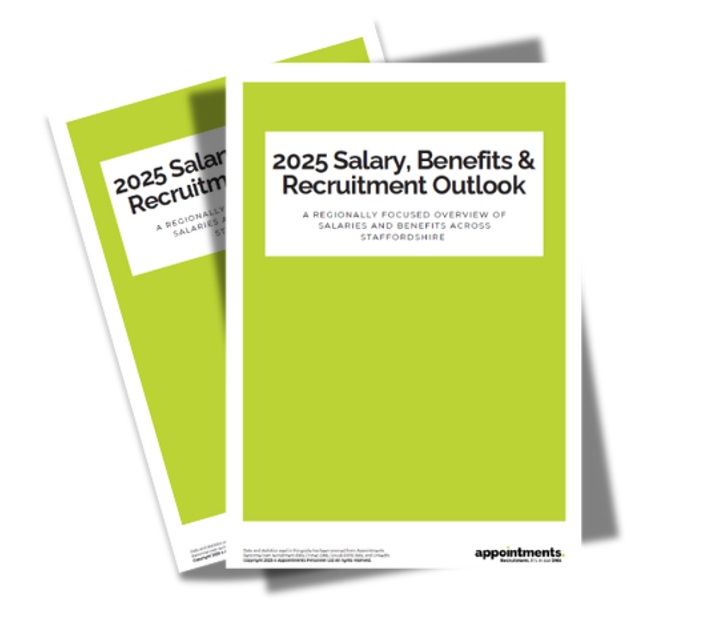
Share Article
HR Legislation Updates Autumn Winter 2022
AThere have been several changes to legislation during 2022, that will have an impact on employers and their employees. Here are the latest legislation updates from the CIPD.
17 November Minimum Wage Increase Announced
In the Autumn Statement Jeremy Hunt announced the new rates for Minimum Wage which come into force on 1 April 2023. For those aged 23 or over the rate increases from £9.50 to £10.42. Read our Minimum Wage blog for full details.
28 October Consultation closed for Tax Simplification Survey
The Office for Tax Simplification – which advises the government on taxation – launched a review at the end of August into how well current tax and social security arrangements fit with hybrid and remote working, including outside the UK. The review asks businesses how they are handling these new ways of working. There is also a survey aimed at employees and the self-employed.
The original closing date for the consultation was 25 November 2022, but this was brought forward to 28 October 2022 on 27 September.
17 October IR35 Rules for contractors remains the responsibility of their employers
Former Chancellor Kwasi Kwarteng’s mini budget on 23 September 2022 contained the announcement that employers would stop being responsible for deciding whether the IR35 tax rules apply to contractors working for them through personal service companies (also known as umbrella organisations). On 17 October, the new Chancellor, Jeremy Hunt, announced the proposed change would not take place.
The change would have effectively removed reforms introduced in 2017 and 2021, when responsibility for checking whether IR35 applied passed from contractors to their public and private sector employers.
3 October Reporting Burden eased for businesses of less than 500 Employees
On this date the small business threshold for any future reporting regulations doubled from 250 employees to 500 employees.
Changes could be made to existing regulations (for example, the gender pay and executive pay ratio reporting regulations when the Retained EU Law Bill (see below) takes effect. The government’s aim is to free an extra 40,000 businesses from ‘future bureaucracy and the accompanying paperwork’ and has said the exemption from reporting will be applied in a proportionate way to ‘ensure workers’ rights are protected’.
1 October Changes to how employers can check right to work documents
During the COVID-19 pandemic, the government introduced digital ways for employers to check employee’s right to work in the UK because of the difficulties associated with manually checking documents. These arrangements end on 30 September.
New digital right to work checks, using ‘identification document validation technology’ (IDVT), became available for employees with valid British or Irish passports from 6 April 2022.
Employers can use a ‘identity service provider’ (IDSP) to carry out this check, although they remain responsible for checking the identity of the employee and retaining the record for the duration of employment plus two years.
From 1 October, employers will need to either:
- Carry out a manual check by physically meeting with the employee to check and copy their original documentation.
- Appoint an ‘identification service provider’ (IDSP) to check the passport of the employee on their behalf or carry out the check themselves using ID document validation technology.
Government guidance has been updated and has a list of approved IDSPs. The Employer Checking Service continues for right to work checks on non-UK/Irish citizens.
22 September UKs Post Brexit Reform set to Revoke Existing EU Law
The Retained EU Law (Revocation and Reform) Bill 2022-23 was published on this date, paving the way for a post-Brexit reform of UK law. The government announcement says the legislation will allow it to ‘amend more easily, repeal and replace’ law derived from the EU which has been kept as part of the Brexit arrangements. The Bill will also include a ‘sunset date’ by which all remaining EU Law will either be removed or absorbed into UK domestic law.
5 September Data Protection Bill changes are stalled
On this date, the Data Protection and Digital Information Bill was stalled in Parliament to allow ministers in Prime Minister Liz Truss’ new administration to ‘consider the legislation further’. The bill is intended to make the UK’s current GDPR regime less of a burden on business while retaining a ‘global gold standard’ for data protection. Secretary of State for Digital, Culture, Media and Sport Michelle Donelan has confirmed that the UK would be replacing the GDPR with ‘our own business- and consumer-friendly British data protection system’.
As it stands, the data protection bill will:
- allow organisations to appoint a ‘senior responsible individual’ to monitor data processing rather than a data protection officer (DPO)
- specify that ‘identifiable personal data’ is data identifiable by those processing or receiving it, rather than anyone
- create a list of ‘recognised’ legitimate interests for processing data
- expand the circumstances when data subject access requests (SARs) can be refused
- restrict automated decision-making only when ‘special’ (sensitive) personal data is involved.
The Bill comes into effect at the end of 2023 and has a transition period up to mid-2026. After this time, regulations derived from EU law including the:
- Working Time Regulations
- Agency Workers Regulations
- Fixed Term Employees Regulations
- Part Time Worker Regulations
- TUPE Regulations
will be removed from UK law unless they are written into new legislation.
1 September Equality and Human Rights Commission (EHRC) new guidance on using artificial intelligence and facial recognition software
The Equality and Human Rights Commission (EHRC) published new guidance on this date on using artificial intelligence (AI) and automated decision-making. The guidance aims to help the public sector avoid breaching the public sector equality duty and the Equality Act 2010 when delivering services that use AI.
The EHRC will work with around 30 local authorities from October to understand how they’re using AI in essential services, such as policing, as there are concerns that AI, including facial recognition software, can be biased against people from ethnic minorities.










